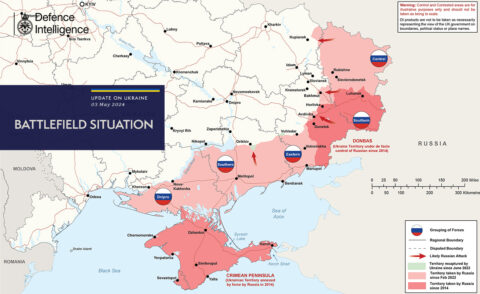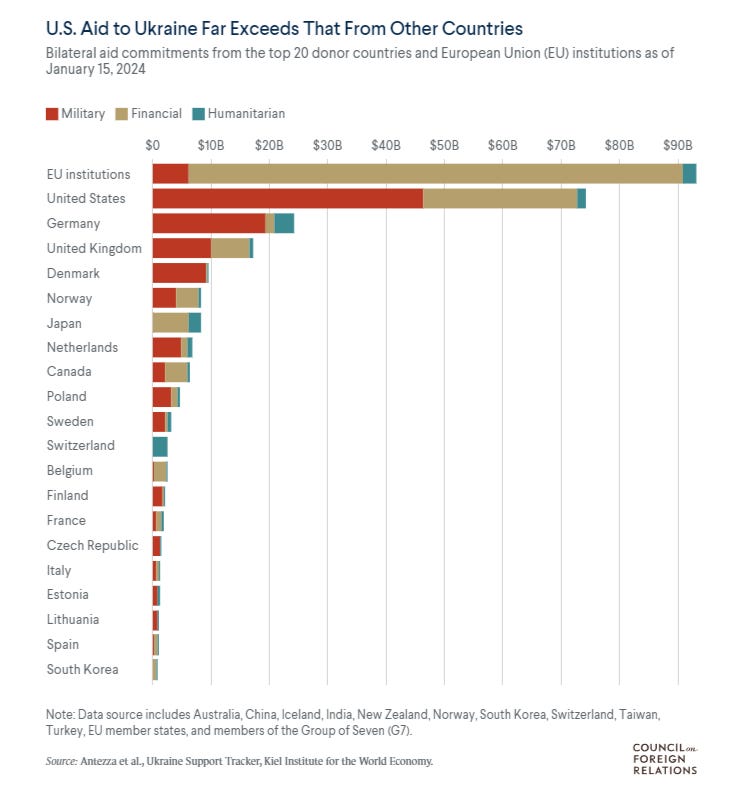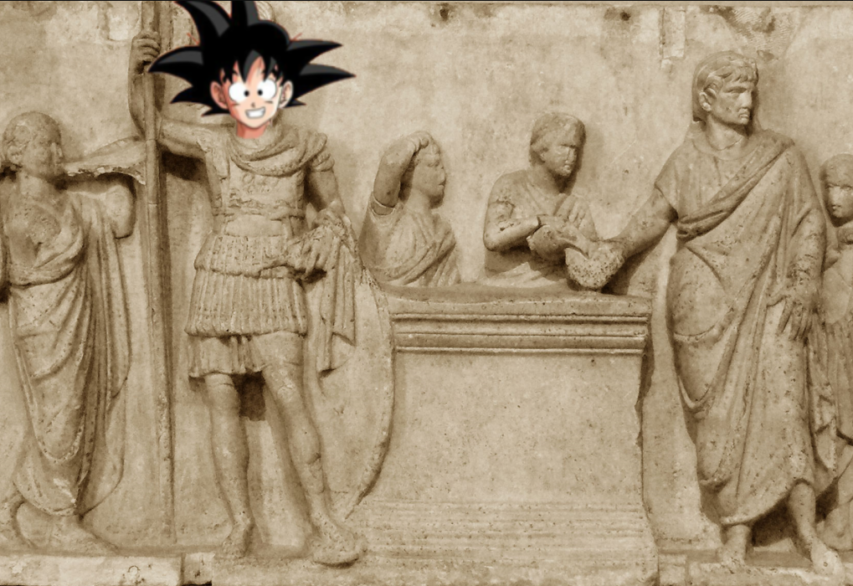It would appear that Putin, Xi, etc. are coming to see themselves as the leaders in a worldwide battle against Juggalisme. That might be wishcasting — they are practical men, after all, and let me state, unequivocally and for the record, that I do NOT want to be ruled by Russians or Chinese. They are not my people. Nonetheless, it does seem clear they understand that the source of their problems is beyond what we think of as geopolitics. The United States is “agreement incapable”, as I guess the term d’art is, because it’s not rational, or even predictably irrational.
That was the monarchist critique of representative government that hit closest to home: Foreign policy needs to be supple and responsive; it must be able to move quickly, to make big changes in narrow time windows. In a real crisis, you simply don’t have time to convene a Parliament to debate stuff. N.b. they were saying this in the late 18th century; it’s so much worse now. And another observation from that time that is even truer today: A “democratic” foreign policy can never be consistent. You simply can’t plan long-term when there’s partial to complete governmental overhaul every few years.
That the US managed to muddle through for as long as it did was really a combo of two things: time (as a function of distance), and a near-peer enemy.
Neither of those is integral to the system, and neither is within the system’s control. Until recently, American foreign policy had to take into account the fact that on-the-spot commanders would have to make decisions on their own recognizance. Even with phone communications, the man on the ground in the Fulda Gap has to make decisions basically without reference to Washington. It forced him to be conservative — in other words, it discouraged adventurism.
Same way with the near-peer enemy. The looming shadow of the USSR forced regular reality checks inside the US Apparat. A whole bunch of possibilities were foreclosed by default — our response to any given situation had to take the likely Soviet reaction into account. As with the time/distance factor, this forced a kind of conservatism that looked a lot like sclerosis, but at least it deterred adventurism.
The history of the later 20th century is the history of those constraints being removed. In Vietnam, for instance, you had LBJ and McNamara sitting in a room in the White House, personally directing airstrikes in near-realtime. If “news” reports are to be believed, Obama was on the horn with that SEAL team going after Bin Laden right up to the very moment the chopper landed. Knowing these things are technically possible is catnip to politicians — they already assume they’re omnicompetent, and so now they want to be “advising” the commanding general even as the battle rages.
And if that’s catnip, then the end of the USSR was catnip on steroids. Why not play fuck-fuck games everywhere, all at once? Who’s gonna stop us? China? They chose to pass. They saw what happened to the USSR when it locked itself into an ideological death spiral vis-a-vis the Struggle Against International Capitalism. American policymakers only understand Soviet-style bluff and bluster. The Chinese play the long game.
NOT because they’re Inscrutable Orientals, I hasten to add — they’re as Juggalicious as our Clowns, in their way — but because the generation currently in power came up hard, and so they are adults. That’s all. They are not spoiled, petulant children. The next generation of Chinese leadership — assuming we live to see it — will really be something, and not in a good way.
So, what does Putin want? I dunno, and I’m not sure he knows, because I’m not sure he can know. I’m sure his broadest goal is “to stop getting fucked with by idiots”, but how can that be achieved? There shall be no durable peace in this world until there is Regime Change in [Washington, DC], and I’m not talking about the other half of the Uniparty winning an election or two. I think Putin knows that, but what can he really do about it? I think he’s going to be forced to annex a fair amount of territory and set up a totally demilitarized buffer zone. It won’t work, but it’s the least-worst practical option.
Severian, “Friday Mailbag”, Founding Questions, 2024-02-09.
May 12, 2024
QotD: What is Putin’s endgame in Ukraine?
May 11, 2024
The second time as farce – “we’re living through a performative version of the seventies”
Sarah Hoyt posted this a few days back, but I only noticed it now:

A member of the CIA helps evacuees up a ladder onto an Air America helicopter on the roof of 22 Gia Long Street April 29, 1975, shortly before Saigon fell to advancing North Vietnamese troops.
Hubert van Es photo via Wikimedia Commons.
Yesterday talking to a friend, he said that it seems like we’re living through a shoddy version of the seventies.
But that’s not QUITE it. It’s more complicated. It’s more like we’re living through a performative version of the seventies.
It’s like all the recasting and re-doing of classic movies and series, at this point even those that weren’t particularly successful: it feels like Hollywood is just redoing these things out of some sort of dinosaur brain memory that they were successful. However, the people in charge no longer have any idea why these things were successful or why they resonated or achieved the results they did.
So the re-casts/re-dos sound hollow and strange, and would even if they didn’t use them to push their weird personal current obsessions. (All heroes must be women and black and increasingly of some odd sexual identity! Only villains can be white!) Because the car is there, but the engine is gone metaphorically speaking.
A Boeing CH-47 Chinook transport helicopter appears over the U.S. embassy compound in Kabul, 15 Aug 2021. Image from Twitter via libertyunyielding.com
All these redos and recastings and all are just shells of what the original was. And imbuing them with current wokeness doesn’t make them massively popular, because it doesn’t have that kind of purchase amid the public.
The left and current “Cultural gatekeeping elite” doesn’t seem to be aware of this, or aware of why they fail. In fact, each failure baffles them.
I could be snide, here, and say that it’s because this entire administration, and in fact, the entire upper-crust/controlling layer of our institutions are profoundly untalented theater kiddies, who have no creativity but love the style, and so are trying to do performance of what they think should be there, in the hopes it will work. And are forever baffled it doesn’t.
The truth is not quite that mean, but it rhymes. They are people of a certain frame of mind. In most places and most times, this would make them profoundly “conservative.” Frankly they are, because 100 years into the “progressive” project, those who support it are conservatives. But it’s a weird sort of “conservatism” because what they’re conserving is the cult that tells them if they tear Western civ apart paradise ensues. The whole just-so cult of Marx as filtered through their parents, grandparents and great grandparents.
Part of the whole Marxian philosophy is that it’s a self-contained system, congruent within itself, and with no basis in reality. This makes a certain type of mind susceptible to it. In other centuries they’d be religious fanatics, missionaries to the heathens and zeal-burned puritans.
That type of mind tends to think of things in terms of pre-ordained and fixed narrative, not wildly creative and innovative. That THEY think of themselves as creatives is the insanity of the current system and the Marxian corruption of institutions. They are not actually capable of creativity, only of passing on the received word.
And so we get to the other side of the rerun of the seventies: These kids, by and large, grew up with everything from schools, to TV to even their parents (for the children and grandchildren of boomers) being sold a version of the sixties and seventies in which protesting on the street, behaving badly and destroying property was being passionate and fighting for the voiceless and by itself meant IMPROVING SOCIETY and MAKING THE WORLD A BETTER PLACE.
So the most gullible of this generation are rebels without a clue. They must perform the hit the streets and protest, but they lack the immediacy of the draft to make it personal, and they lack anything like civil rights to make it righteous.
Instead they attach to any stupid cause they can find or which is handed to them by manipulative SOBs. So, you know, it might be saving the endangered Prebles Jumping Mouse, or perhaps saving old buildings, or even well … Lately Occupy Wall Street, BLM, antifidiots and of course pro-Hamass.
Apple crushes it
You might not believe me, but I haven’t seen the Apple ad that everyone is hating on. I actively avoid ads of all kinds and refuse to open websites that are little more than shills for whoever is paying for the advertising. That aside, the description of the current ad — that Apple has already apologized for, I’m told — would certainly make me less likely to deal with the company that produced it:
Not since Kendall Jenner slipped away from a modeling shoot to defuse the tensions around a Black Lives Matter protest by handing a can of Pepsi to a riot cop has a mainstream ad campaign generated as much hostility as the just-released spot from Apple pitching the arrival of the thinnest iPad ever.
The ad was shared on Twitter by Apple CEO Tim Cook, who implored potential customers to “Just imagine all the things it’ll be used to create.” The clip shows a huge hydraulic press slowly crushing a bunch of old analog-era creative tools and treats, including a trumpet, an acoustic guitar and a piano, a record player, a camera, an old stand up arcade game, some rubber squeeze toys, and a bunch of paint cans. Then it pulls up to reveal the new, ultra thin iPad Pro, which has assimilated all of these things like some flatland Borg.
You can see what Apple was going for here – all these old, bulky, single purpose tools and playthings are now available at your fingertips, in a package no bigger than a magazine. It’s an upgraded version of that old meme that used to go around about everything that used to be literally on your desktop – phone, typewriter, file folders, fax machine, and so on – is now digitally sitting there on your computer desktop.
People got it all right. The response to the spot was immediate, visceral, and vicious. They hate it.
How did Apple go so wrong?
The most salient feature of the western mind’s relationship with technology is the ambivalence we have felt ever since Prometheus stole fire from the gods. On the one hand, we can now cook our food and keep ourselves warm. On the other hand, who knows where this will lead? Have we unleashed forces that will lead us to our destruction, or at least, lead us away from our true, authentic, selves? We love technology but we fear it, and the pendulum tends to swing from one extreme to the other depending on a host of factors, the most important of which is probably the rate of change and innovation. The faster things move, the less time we have to adapt, and we fear what is being lost more than we appreciate what is being gained.
We are living through a period of what is for most of us unprecedented technological change, where the threats – to both humanity, and to our humanity – seem more urgent than they have in decades, certainly since the advent of the nuclear bomb. Whether it is the sudden fears over AI or the rising moral panic over smartphones or the leery way we look at self-driving cars, there is a firm sense that things are just happening too fast, that the old is being replaced by the new in ways we are barely able to process, let alone control.
Update, 17 May: Samsung picks up something from the wreckage:
The publicity error was compounded by a frenzy of critical mainstream media coverage accompanied by celebrities expressing their outrage at the ad. But Samsung was not ready to let it lie.
The South Korean consumer technology mega-corp posted a short video on Twitter — which now calls itself X — accompanied by the hashtag “UnCrush”.
It shows a young woman walking into what appears to be the wreckage left behind by the Apple ad. Picking up a badly damaged guitar, with strings missing and holes in the body’s soundboard, she nonetheless sits down to play, reading music from a Samsung tablet.
“We would never crush creativity,” Samsung says in the social media post.
It might be a cheap shot, but it is one that is bound to sting for Apple.
Rex Murphy, RIP
Canadian political commentator Rex Murphy has died at 77:
Tributes and remembrances from across the political spectrum have poured in for Rex Murphy, who died aged 77.
Mark Critch, a fellow Newfoundlander who parodied Murphy on the CBC program This Hour Has 22 Minutes, recalled that Murphy had worked with his father at VOCM radio in St. John’s, N.L. “You might not always agree with what he had to say but oh, could he say it”, Critch wrote on X, formerly Twitter. “I hope he makes it home to Gooseberry Cove.”
That theme — of not always agreeing with Murphy, but admiring his style — has been frequent in remembrances of his life.
Bob Rae, a long-time Liberal member of Parliament, former premier of Ontario and now Canada’s ambassador to the United Nations, wrote of meeting Murphy on television in 1978: “He stole the show”.
“We disagreed about many things, but I never lost my affection and admiration for him,” Rae wrote on X.
In a video posted Thursday evening, which had been recorded for an award Murphy received prior to his death, Conservative Leader Pierre Poilievre praised Murphy’s “verbal ninja moves”.
“You are a national treasure. You are a voice of reason. You are a champion of all things that are great in our country,” Poilievre said.
Canada has lost an icon, a pioneer of independent, eloquent, and fearless thought, and always a captivating orator who never lost his touch.I was honoured to toast to Rex a few months ago on receiving the Game Changers Award for one of this country’s true game changers.
Rex,… pic.twitter.com/Nz8fWBPv7F
— Pierre Poilievre (@PierrePoilievre) May 10, 2024
On Friday, the House of Commons held a moment of silence in honour of Murphy.
“Few gifts from the rock rival that of the now-departed Rex Murphy,” Conservative MP John Williamson said in the House. “Rex stood on guard for all of us with great wit and wisdom throughout his many newspaper columns and on-air commentaries. Rex was brave but without pretence. He despised the smug.”
Murphy’s writing, which appeared for more than a decade in National Post, was always fierce, often controversial, and liberally peppered with the sort of language that has the feel of an age gone by.
QotD: Enough time to “get things done”
If you ever wish you could have more time to get something done, just remember: if you did have more time, you wouldn’t get more done. The extra time would melt away, and you’d be back feeling pressure to get it done in too little time. You might as well enjoy the free time and not moan about the things you didn’t achieve. Idle moments at the dining table, talking about this and that, are much more your real life than all those grand accomplishments, achieved and unachieved.
Ann Althouse, “Easter and the end of Spring Break”, Althouse, 2005-03-27.
May 10, 2024
A different take on the Russo-Ukrainian War
Kulak suggests that far from being a model for future wars, the ongoing conflict in Ukraine may not prefigure anything at all about future wars:
Few weeks go by where I don’t read a piece on how Ukraine is the Future of warfare and armies and thinkers need to adjust to the reality that the warfare of the future will involve massive unaccountable amounts of artillery, trenches, conscription and grinding warfare.
While sometimes they point to relevant lessons: Yes the inability of the US to quickly reindustrialize and produce artillery shells at a rate comparable to Russia does speak to a profound rot in American governance, the military industrial complex, and American business regulation more generally,
Often times the conclusions drawn are dangerously delusional: A draft would be more likely to break the American nation than save it. As indeed conscription has resulted in Ukraine’s population collapsing with somewhere between 6 and 10 million Ukrainians (out of a pre-war 36 million) having fled the country, not to escape the mostly static war, but to escape the Totalitarian conditions the Zelensky regime has imposed in response to the war. (1.1 million of whom escaped INTO Russia, for any who deny this [is] largely an ethnic conflict between Western and Russian Ukrainians, as it has been since 2014).
And the thing is all of these discussions rest on a assumption that seems ludicrous the second you stop and think about it: Ukraine is not the future of Warfare, these conditions will be almost impossible to ever create again.
Ukraine had a pre-war Nominal GDP of 199 billion USD. Officially this only declined to 160 billion in 2022 as a result of the war, but there’s good reason to think its actual internal private sector economy collapsed far further [given] it had collapsed from 177 billion in 2013 to 90 billion in 2015 as a result of the US backed Coup/Revolution.
Indeed given the population flight, conscription, and impositions on the populace, it is very likely a SUPER-MAJORITY of that 160 billion GDP in 2022, was actually the result of US and NATO pouring hundreds of billions into the country. Where it was either used or siphoned off as corruption.
Simply put Ukraine has received military, financial and other aid most like in excess of what its entire internal economy produced in the same period, and as of writing it’s still losing territory.
When commentators say this is a war between NATO and Russia they are almost entirely correct. If you combine all the economies that are funding, arming, or fighting on one side or the other of this war you get a majority of the entire global economy.
And they have used all that money to pay off the Ukrainian regime to refuse any peace agreement, even ones their own negotiators had agreed to, and that were clearly in the best interest of the country … you know if you value hundreds of thousands of young men and not having your population collapse more than narrow stretches of land being bought up by Blackrock.
20 years of Quotulatiousness

20th anniversary celebration badge label in golden color
Image by starline on Freepik
 Twenty years ago, my friend and co-worker Jon decided to start a blog of his own — it was all the rage back then, all the cool kids on the internet were doing it — and offered me access to his new site to put up my own blog. You may not believe this, but in those days you had to pay money to an ISP for a web site like a blog and to install and administer your own blog software, so this was a kind and generous offer that I’d have been a fool to turn down. While I’d been an avid reader and commenter on other blogs, I wasn’t really sure what I’d do with my own little piece of the blogosphere, so I started off just making it an extension of my quotation collection with a bit of random commentary added.
Twenty years ago, my friend and co-worker Jon decided to start a blog of his own — it was all the rage back then, all the cool kids on the internet were doing it — and offered me access to his new site to put up my own blog. You may not believe this, but in those days you had to pay money to an ISP for a web site like a blog and to install and administer your own blog software, so this was a kind and generous offer that I’d have been a fool to turn down. While I’d been an avid reader and commenter on other blogs, I wasn’t really sure what I’d do with my own little piece of the blogosphere, so I started off just making it an extension of my quotation collection with a bit of random commentary added.
Blogging isn’t dead, despite the innumerable obituaries posted by both bloggers and legacy journalists (whistle past the graveyard much?), thanks to newer initiatives like Substack and the continued self-destruction of the old media, blogs still have a place in the online ecosystem.
Typical blog content is really a modern incarnation of what used to be called “commonplace books” where a writer would collect information of interest that didn’t necessarily relate to the writer’s main interests or to anything else added to the book, as this summary explains:
Commonplace books (or commonplaces) are a way to compile knowledge, usually by writing information into books. They have been kept from antiquity, and were kept particularly during the Renaissance and in the nineteenth century. Such books are essentially scrapbooks filled with items of every kind: recipes, quotes, letters, poems, tables of weights and measures, proverbs, prayers, legal formulas. Commonplaces are used by readers, writers, students, and scholars as an aid for remembering useful concepts or facts. Each one is unique to its creator’s particular interests but they almost always include passages found in other texts, sometimes accompanied by the compiler’s responses. They became significant in Early Modern Europe.
“Commonplace” is a translation of the Latin term locus communis (from Greek tópos koinós) which means “a general or common topic”, such as a statement of proverbial wisdom. In this original sense, commonplace books were collections of such sayings, such as John Milton’s example. Scholars now understand them to include manuscripts in which an individual collects material which have a common theme, such as ethics, or exploring several themes in one volume. Commonplace books are private collections of information, but they are not diaries or travelogues.
I think that’s a pretty good description of most blogs, and certain is true of Quotulatiousness.
Earlier anniversary postings:
- Nineteenth anniversary
- Eighteenth anniversary
- Seventeenth anniversary
- Sixteenth anniversary
- Fifteenth anniversary
- Fourteenth anniversary
- Thirteenth anniversary
- Twelfth anniversary
- Eleventh anniversary
- Tenth anniversary
- Ninth anniversary
- Eighth anniversary
- Seventh anniversary
- Sixth anniversary
Unfortunately, the first five years of postings — when I was merely a freeloading tenant on Jon’s site — aren’t accessible any more. With the move to my own site, I switched from MovableType to self-hosted WordPress (currently running version 6.5.2).
Table Manners in the Ottoman Empire – Acem Pilaf
Text from https://www.tastinghistory.com/recipes/ottomanpilaf:
At an Ottoman banquet, you were only ever meant to eat a few bites of each dish that was brought out (having more was seen as being greedy). But there was no danger of leaving the table hungry, as there could be upwards of dozens of dishes. To European visitors, the order that the dishes were brought out in made no sense. Cakes could be brought out between meat courses, a rich pastry brought out after fish, and fowl after chocolate cake. Amidst this seeming chaos, pilaf was always the last dish served.
Let’s address the elephant in the room and state that yes, the pilaf is supposed to come out layered and all in one piece, but mine did not. Ottoman dishes were meant to be not only flavorful, but beautiful as well. That being said, even if you mold yours in a separate container like I did, it is still delicious (and quite nice looking). The warm spices are a wonderful and unusual combination with the lamb (at least to my palate), and there is a fantastic array of textures.
“Chop a piece of good mutton into small pieces, place them in a pot … add one or two spoonfuls of fresh butter and after frying, take the cooked meat from the pot with a hand strainer. Finely chop three or four onions and fry them, then put the roasted meat on top. Then add plenty of pistachios, currants, cinnamon, cloves, and cardamom on top. After that, according to the old method, one measure of washed Egyptian rice. Add two measures of cold water without disturbing the rice, add sufficient salt, then close the lid of the pot and cover it thoroughly with dough. Boil it slowly on coals and when the water is absorbed, take the cover off, and turn the contents out of the pan onto a dish so it comes out intact. This makes a Pilaw that is very pleasing to the sight, and exceedingly pleasant to the taste.”
— Melceü’t-Tabbâhîn, 1844
QotD: The artificially induced public interest in women’s football
Sometimes I think (or is it feel?) that we are living in a propaganda state, not like that of North Korea, of course, in which the source of a univocal doctrine is clear and unmistakable, but one in which we are constantly under bombardment by an opinion-forming class that wants to make us believe, or be enthusiastic about, something to which we were previously indifferent or even hostile. There is no identifiable single source of the propaganda, and yet there seems also to be coordination: for how else to explain its sudden ubiquity? It is more Kafka than Orwell.
For example, quite recently there has been a concerted attempt to persuade the European public that women’s football (soccer) is interesting and exciting. The newspapers and online publications suddenly carry stories about it, with pictures, reports, profiles, and the like, whereas, shortly before, most people were only vaguely aware that women even played football.
No one can object to their doing so, of course, but the fact remains that they are not very good at it, at least not by comparison with men. They may be good — but with for women always appended. It is not the fault of women that they are not very good at football, any more than it is the fault of fish that they are illiterate, but the fact that everyone pretends not to notice it and dares not say it, at least in public, is surely a little sinister. A man of seventy may still play a good game of tennis, but it is always for his age: one wouldn’t expect him to win Wimbledon, nor would one expect excited, breathless reports on an over-seventies’ tennis tournament. The sudden interest in women’s football thus has a bogus feel about it, like the simulated enthusiasm of a crowd for the dictator in a communist state.
Theodore Dalrymple, “Propaganda & uglification”, New English Review, 2023-12-21.
May 9, 2024
“The ability to believe entire gargling nonsense is strong in the [environmental] sector – as with this particular claim that we’re going to run out of rock”
Tim Worstall really, really enjoys kicking the stuffing out of strawman arguments, especially when they touch on something he’s very well informed about:
Some environmental claims are not just perfectly valid they’re essential for the continuation of life at any level above E. Coli. None of us would want the Thames to return to the state of 1950 when there was nothing living in it other than a collection of that E. Coli reflecting the interesting genetic and origin mix of the population of London. Sure, the arguments from Feargal and the like that a river running through 8 million people must be clean enough to swim in at all times is a bit extreme the other way around. One recent estimate has it that to perform that task for England would cost £260 billion — a few swimming baths sounds like a more sensible use of resources than getting all the rivers sparkling all the time.
Some are more arguable — violent and immediate climate change would be a bad idea, losing Lowestoft below the waves (possibly Dartford too) in 2500 AD might be something we can all live with. Arguable perhaps.
But some of these claims are wholly and entirely doolally. So much so that it’s difficult to imagine that grown adults take them seriously. But, sadly, they do and they do so on our money too.
Wow. According to this research 40% of the 1.5C C02 budget could be used just for digital & internet use/infrastructure & 55% of the earths carrying capacity for minerals & metals for the same use.
The internet alone could use 55% of the Earth’s carrying capacity of metals and minerals? Well, to take that seriously is insane. That is not mere hyperbolic insult, that actually is insane. I write as someone who has written an entire book on this very subject (available here, for free, save your money to buy a subscription to this excellent Substack instead). There is no metal or mineral that we’re even going to run short of — in the technical, not economic, sense that is — for tens of millions of years yet. As the average lifetime of a species is perhaps 2 million years that should see us out.
So, clearly, they’re using some odd definition of how many minerals and metals we’ve got that we can use. I thought they’d do the usual Club of Rome thing (no, read the book to find out), confuse mineral reserves with what’s available and thus insist we all died last Tuesday afternoon. Rather to my surprise, no, they didn’t. They went further into raging lunacy.
It’s not wholly obvious as they don’t really quite announce their assumption, it’s necessary to track back a bit — and that’s a problem in itself. A top tip about scientific papers — if they say “As Bloggs said” then what that really means is that many people accept what Bloggs said as being true and also useful. You do not have to reprove Einstein every time you do physics, you can just say “As is known”. You’ve only got to reprove Al if that’s what you’re really trying to do.
Thus, if a definition is a referral back to something else, elsewhere, then you can be sure that the definition is a building block being used by others in their own papers. It’s a generalised insanity, not a specific one.
So, what is that limit?
Here we quantify the environmental impacts of digital content consumption encompassing all the necessary infrastructure linked to the consumption patterns of an average user. By applying the standardised life cycle assessment (LCA) methodology, we evaluate these impacts in relation to the per capita share of the Earth’s carrying capacity using 16 indicators related to climate change, nutrients flows, air pollution, toxicity, and resources use, for which explicit thresholds that should never be exceeded were defined
Now this is in Nature Communications. So it’s science. Even, it’s Science. It’s also lunatic. For, tracking back to try to find what those “resources use” are that will be 55% used up by the internet. It’s possible to think that maybe we’re going to use too much germanium in the glass in the fibreoptic cables say, or erbium in the repeaters, or … specific elements might be in short supply? As the book wot I wrote above points out, that’s nonsense. So, what is the claim?
Tracking back we get to this:
Resource use, mineral and metals MRD kg Sb eq Abiotic resource depletion (ADP ultimate reserves) 2.19E+08 3.18E-02 JRC calculation based on factor 2 concept Bringezu (2015); Buczko et al. (2016) Resource use
That’s from Table 3.
Which takes us one stage further back. This paper here is talking about Planetary Boundaries and as with the building block idea. PBs — I assume — make the assumption that Bringzeu, and Biczlo et al have given us a useful guide to what those PBs are. Which is why they just use their method, not invent a new one. But that, in turn, also means that other people working on PBs are likely to be using that same definition.
[…]
Note what they’re doing. Humans should not take out of that environment more than nature puts back into it each year. That’s some pretty dumb thinking there, as we don’t, when we use a metal or mineral — except in very rare circumstances — take it off planet. We move it around a bit, no more. But the claim really is that we should abstract, for use, no more than is naturally added back each year.
So, the correct limitation on our minerals use is how much magma volcanoes add each year.
No, really, humanity can use no more earth than gets thrown out of a volcano each year. That’s it. To use more would mean that we are depleting the stock and that’s not sustainable, see?
The Liri Valley: Canada’s Breakthrough to Rome
WW2TV
Published 8 May 2024The Liri Valley: Canada’s Breakthrough to Rome
With Mark Zuehlke
Part of our “Italy 1944 – Monte Cassino and Beyond” series
• Monte Cassino and BeyondFor the Allied armies fighting their way up the Italian boot in early 1944. Rome was the prize that could only be won through one of the greatest offensives of the war. The Liri Valley was a long, flat corridor through miles of rugged mountains. At one end stood the formidable Monte Cassino, at the other, Rome. In May 1944, I Canadian Corps drops up this valley toward the Italian capital, facing the infamous Hitler Line — a bastion of concrete bunkers fronted by wide swaths of tangled barbed wire, minefields, and “Tobruk” weapon pits. The ensuing battle resulted in Canada’s single bloodiest day of the Italian campaign. But the sacrifice of young Canadians during the twenty-four days of relentless combat it took to clear the valley paved the way for the Allies to take Rome.
Mark Zuehlke is an award-winning author generally considered to be Canada’s foremost popular military historian. His Canadian Battle Series is the most exhaustive recounting of the battles and campaigns fought by any nation during World War II to have been written by a single author.
(more…)
“[B]ad music does seem to disappear – you just need to wait 70 or 80 years, more or less”
I’m far from a modern music fan, so I find Ted Gioia’s analysis of the genre to be hopeful for the future … there’s so much objectively bad music being released these days, but the vast majority of it will sink without a trace:
“No stupid literature, art or music lasts.”
That’s a quote from literary critic George Steiner (1929-2020) — in his highly recommended book Real Presences from 1986.
I was shocked when I read that sentence. But pleasantly shocked.
Could it really be true that all the sonic detritus circulating in our culture will just magically disappear? It seems too good to be true.
And Steiner wrote that before the rise of the Internet and AI. If he thought we were drowning in crappy art back in the 1980s, what would he think now?
Around 100,000 songs are uploaded online every day. I can’t listen to more than a fraction of them, but almost every day I check out random new tracks on Bandcamp — and sometimes the process is painful.
Nobody can say that I’ve shirked my responsibilities as a music critic. In recent months, I’ve listened to death metal bands from Croatia who sounded like they were ready to bludgeon the entire population of Zagreb; incoherent Christian drone pop that only delivers the Good News when it’s finally over; entire albums of static, buzzes, burps, or toots; people singing to backup tracks, but apparently unaware that they are in different keys; and various home recordings that should never have left the basement.
It’s an ugly job, but somebody has to do it. I occasionally find that rare gem, a self-produced needle of rare pointedness in the otherwise dismal haystack. That makes it all worthwhile.
But Steiner may be on to something. Most of the bad stuff disappears without anyone worrying about it. In fact, it disappears for that very reason — because nobody worries about it.
And the deeper I peer into the past, the more I see the same Darwinian trend. He called it survival of the fittest.
My considered judgment is that almost every musical work from the 17th and 18th centuries that survives in the standard repertoire possesses some merit. An interesting case is Bach, who is the presiding genius among the known composers from that era. Bach was unfairly forgotten in the years following his death — in fact, his sons got more acclaim than their dad.
Bach had been dead for more than 75 years before his reputation started rising again. The neglect was unfair, almost horrendously so. But with the passage of time, he gained preeminence, almost as if an invisible hand — much like those the economists describe — was setting things right. You could tell similar stories about other composers, from Antonio Vivaldi to Scott Joplin. It’s almost magical the way things work.
I must say that this is a judgment that takes a long time to make. Back at age twenty, I couldn’t have told you if Bach wrote better fugues than other composers, or Joplin composed better rags. Yet after decades seeking lost masterpieces from the past, and picking through the works of secondary and tertiary figures, I’ve concluded that the legendary figures from the past definitely earned their preeminence.
As a result, I worry more about the artists whose work has disappeared completely. Those are wrongs that can’t be rectified.
How the First World War Created the Middle East Conflicts
The Great War
Published Dec 8, 2023The modern Middle East is a region troubled by war, terrorism, weak and failed states, and civil unrest. But how did it get this way? The map of today’s Middle East was mostly drawn after the First World War, and the war that planted many of the seeds of conflict that still plague Israel, Palestine, Iraq, Syria and even Iran today.
(more…)
QotD: Rome’s socii system
The earliest indicator we have of what is going to be Rome’s socii-system is the Foedus Cassianum (“Cassius’ Treaty”) concluded with the communities of Latium – the Latins – in 493. That is, of course, quite an early date and while we have narratives of these events from both Livy and Dionysius of Halicarnassus, we have to be quite cautious as they are operating at great chronological remove (both writing in the first century B.C.) and with limited sources (something both actually more or less admit). According to Livy (2.18) the issue had begun with thirty Latin towns conspiring in a league against Rome (which does not yet have any imperial holdings), to which Rome responded by going to war. The timing, just a few years after the expulsion of Rome’s kings and the formation of the res publica may be suggestive that the Latins had formed this league to take advantage of the political crisis in Rome, which was the largest town in Latium, in order to throw off whatever Roman influence they may have been under during the period of the kings.
In any case, the Romans win the war and impose a peace treaty the terms of which, according to Dionysius of Halicarnassus went thusly:1
Let there be peace between the Romans and all the Latin cities as long as the heavens and the earth shall remain where they are. Let them neither make war upon another themselves nor bring in foreign enemies nor grant a safe passage to those who shall make war upon either. Let them assist one another, when warred upon, with all their forces, and let each have an equal share of the spoils and booty taken in their common wars. Let suits relating to private contracts be determined within ten days, and in the nation where the contract was made. And let it not be permitted to add anything to, or take anything away from these treaties except by the consent both of the Romans and of all the Latins.
This is the origin point for Rome’s use of what I’ve termed the “Goku Model of Imperialism” – “I beat you, therefore we are friends”. Having soundly defeated – at least according to our sources – the Latins, Rome doesn’t annex or destroy them, nor does it impose tribute, but rather imposes a treaty of alliance on them (in practice I suspect we might want to understand that Rome’s position was not so dominant as our sources suggest, thus the relatively good terms the Latins get). The treaty sounds like an equal relationship, until one remembers that it is the entire Latin league – thirty or more communities – as one party and then just Rome as the other party.
Rome proceeds, in the century or so that follows, to use this alliance to defeat their other neighbors, both the nearest major Etruscan centers as well as the Aequi and Sabines who lived in the hills to the north-east of Rome and the Volsci who lived to the south of Latium. Roman relations with the Latins seem to fray in the early 300s, presumably because the greatest threat to their communities was increasingly not the Volsci, but Rome’s emerging regional power. That leads to a collapse of the Foedus Cassianum in 341 and another war between Rome and the Latin League. Once again our sources are much later, so we might be somewhat skeptical of the details they provide, but the upshot is that at the end the Romans won by 338.
Rome’s expansion into most areas follows a familiar pattern: Rome enters a region by concluding an alliance with some weaker power in a region and then rushing to the aid of that weaker power; in some cases this was a long-term relationship that had been around for some time (like the long Roman friendship with Etruscan Caere) and in some cases it was a very new and opportunistic friendship (as with Capua’s appeal to the Romans for aid in 343). In either case, Rome formed a treaty with the community it was “protecting” and then moved against its local enemies. Once defeated, it imposed treaties on them, too. Rome might also seize land in these wars from the defeated party (before it imposed that treaty); if these were far away, Rome might settle a colony on that land rather than annexing it into Rome’s core territory (the ager Romanus). These new communities – the Latin colonies – were created with treaty obligations towards Rome.
Note the change: what was initially an alliance between one party (Rome) and another party (the Latin League) has instead become an alliance system, a series of bilateral treaties between Rome and a slew of smaller communities. And they were smaller, because Rome often took land in these wars, so that by the third century, the Roman citizen body represented roughly 40% of the total, making Rome much bigger than any other allied community. This shift was probably gradual, rather than there being some dramatic policy change at any point. Rome accrued its Italian empire the same way it would accrue its Mediterranean one: as a result of a series of localized, ad hoc decisions which collectively added up to the result without ever being intended to constitute a single, unified policy.
The Romans called all of these allied communities and their people socii, “allies” – a bit of a euphemism, because these were no longer equal alliances. We’ll get into the terms in a moment, but it seems clear that by 338 that these “allies” are promising to have no foreign policy save for their alliance with Rome and to contribute soldiers to Roman armies. So Rome is in the driver’s seat determining where the alliance will go; Rome does not have to consult the allies when it goes to war and indeed does not do so. The socii cannot take Rome to war (but Rome will go to war immediately if a community of socii is attacked). This is no longer an equal arrangement, but it is useful for the Romans to pretend it is.
The next major series of Roman conflicts are with the Samnites. Rome is, according to Livy, at least, drawn into fighting the Samnites because of its suddenly concluded alliance with Capua and the Campanians (though Rome had been more loosely allied to the Samnites shortly before). In practice, the first two Samnite Wars (343-341, 326-304) were fought to determine control over Campania and the Bay of Naples, with Rome fighting to expand its influence there (by making those communities allies or protecting those who were) while the Samnites pushed back.
The Third Samnite War (298-290) becomes something rather different: a containment war. Rome’s growing power – through its “alliance” system – was clearly on a course to dominate the peninsula, so a large coalition of opponents, essentially every meaningful Italian power not already in Rome’s alliance system, banded together in a coalition to try to stop it (except for the Greeks). What started as another war between Rome and the Samnites soon pulled in the remaining independent Etruscan powers and then even a Gallic tribe (the Senones) in an effort to contain Rome. The Romans manage to pull out a victory (though it was a close run thing) and in the process managed to pull yet more communities into the growing alliance system. It seems – the sources here are confused – that the decade that followed, the Romans lock down much of Etruria as well.
The Greek cities in southern Italy now at last recognize their peril and call in Pyrrhus of Epirus to try to beat back Rome, leading to the Pyrrhic War (280-275). Pyrrhus wins some initial battles but – famously – at such cost that he is unable to win the war. Pyrrhus withdraws in 275 and Rome is then able over the next few years to mop up the Greek cities in Southern Italy, with the ringleader, Tarentum, falling to Rome in 272. Rome imposed treaties on them, too, pulling them into the alliance system. Thus, by 264 Rome’s alliance system covered essentially the whole of Italy South of the Po River. It had emerged as an ad hoc system and admittedly our sources don’t give us a good sense of how and when the terms of the alliance change; in many cases it seems our sources, writing much later, may not know. They have the foedus Cassianum, with its rather more equal terms, and knowledge of the system as it seems to have existed in the late third century and the dates and wars by which this or that community was voluntarily or forcibly integrated, but not the details of by what terms and so on.
Bret Devereaux, “Collections: How to Roman Republic 101, Addenda: The Socii“, A Collection of Unmitigated Pedantry, 2023-10-20.
1. trans. Earnest Clay (1940).













